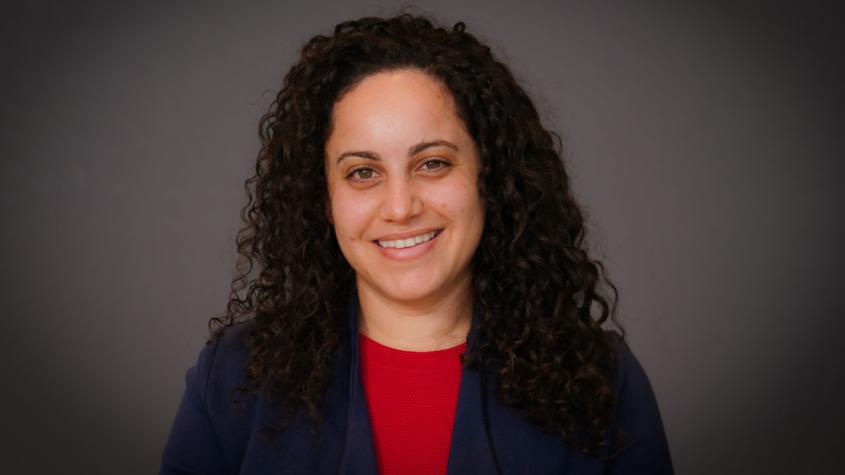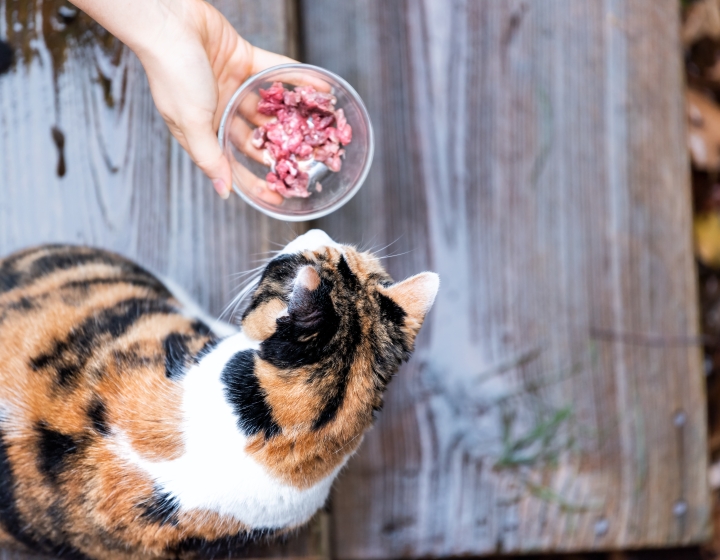New faculty profiles: Dr. Emma Houck
The Cornell University College of Veterinary Medicine (CVM) has recently welcomed many new faculty members to our academic departments, each one bringing a unique set of skills and experience that enriches our college every day. In this Q&A series, you'll get to know their interests, expertise and more.
Dr. Emma Houck, assistant clinical professor in the section of zoological medicine
Q: What has been your academic/career path leading up to Cornell?
A: I studied animal biology and veterinary medicine at the University of California, Davis. Following completion of my D.V.M. in 2012, I completed an internship in small animal medicine and surgery at a private specialty hospital in Nashville, Tennessee. I then moved to North Carolina where I completed a one-year exotic animal medicine internship and a three-year zoological medicine residency with North Carolina State University, the North Carolina Zoo and the North Carolina Aquariums. My last stop before joining Cornell was achieving board certification with the American College of Zoological Medicine this past fall.
Q: What drew you to CVM?
A: Cornell is known for its innovative approach to engaging with the challenges this world faces. I knew that I would feel at home within Cornell’s collaborative environment that promotes excellence and forward thinking.
Q: What is your clinical/scientific area of expertise?
A: I am a specialist in zoological medicine, which means that I provide medical care for all of the types of animals that live in zoos and aquariums. My day could include a wellness exam of a sloth, diagnostics on a fish who is not floating properly and a diet evaluation for a dart frog colony. We are flexible problem-solvers who apply medical knowledge from our more familiar species like dogs, horses and humans to our unique species like otters, elephants and lemurs. No matter what species I work on, the driving aim behind it all is ensuring the health and welfare for each animal in our care.
Q: What drew you into this area? Any specific experiences, mentors or influences that helped guide you?
A: When I was a small child, I gained an appreciation for the natural world through visits to the San Diego Zoo. I was in awe of the many types of animals and habitats they came from. I became a veterinarian so that I could become a leader in animal welfare in zoos.
Q: What past professional work are you most proud of and why?
A: My mentees are a big source of joy for me. Each person I have helped to learn, grow and achieve makes me so proud and allows me to create an impact beyond what I can do alone.
Q: What about your clinical work, research or teaching innovations are you most excited for/proud of and why?
A: I am most excited about our soon-to-be published research that will improve cockroach welfare. Yes, you read that correctly: Cockroach welfare. Cockroaches are commonly kept in zoos, museums and as pets, but so little is known about their medical care. Animals don’t need to be as lovable as a Labrador puppy for their life, health and medical care to be worth our time and investment. I noticed a knowledge gap in our euthanasia methods because cockroaches are indeed resilient and difficult to provide a humane ending for. Our research will provide clear recommendations that will minimize cockroach suffering when euthanasia is indicated.
Q: What impacts or applications do you hope to see your work have on the world, human/animal/planetary health?
A: Every day at the zoo we are improving animal care and wellness and educating folks about the amazing biodiversity that exists on this planet. By demonstrating care for exceptional individual animals, we ascribe worth to the unique animals on this planet. By facilitating their health and natural behaviors, we provide opportunities for the public to be inspired by the natural world. I hope that connecting with and appreciating nature will provide a natural on-ramp for members of the public to make wise decisions that respect and honor our amazing planet.
Q: What clinical or scientific questions are you looking to answer next or areas you plan to explore?
A: My next phase of research will tackle some big questions in zoo and aquarium animal welfare. I hope to use allostatic load, an index made up of various biomarkers that represent the cumulative stress over an animal’s lifetime, to assess welfare and identify risk factors for morbidity and mortality in zoo animals. I also hope to help close the knowledge gap on aquatic animal welfare, such as investigating analgesics in cephalopods (a group of invertebrates that includes octopus, squid and cuttlefish).
Q: What’s something most people don’t know about you?
A: I am an avid soccer fan and player. I love to watch international soccer leagues and matches, especially my favorite team Liverpool FC.
Q: What’s the best part of being a clinician/scientist?
A: I love that we are always learning and that there is always room for discovery and growth. Problem-solving in clinics is rewarding. Innovating and discovering through research is exhilarating. Combining those two facets into practical research that solves real-world clinical problems is my happy place.
Q: What’s the most challenging part?
A: Working with so many different species can be challenging because they all have such unique physiology. I have to be okay that sharks have a BUN of 1,000 because that’s their primary mode of osmoregulation and that the normal rectal temperature of a naked mole rat is 89 degrees Fahrenheit because they are poikilothermic rodents. You need humility, curiosity and a nimble mind to jump between taxa and to operate outside of your comfort zone every single day.
Q: What are the benefits of working at CVM? At Cornell?
A: The College of Veterinary Medicine affords me and my zoo patients access to world-class veterinary specialists who can raise the level of care they receive. Working at Cornell grants me resources to reach outside of my discipline and learn from other fields and inspires me to reach for excellence in my daily practice.




